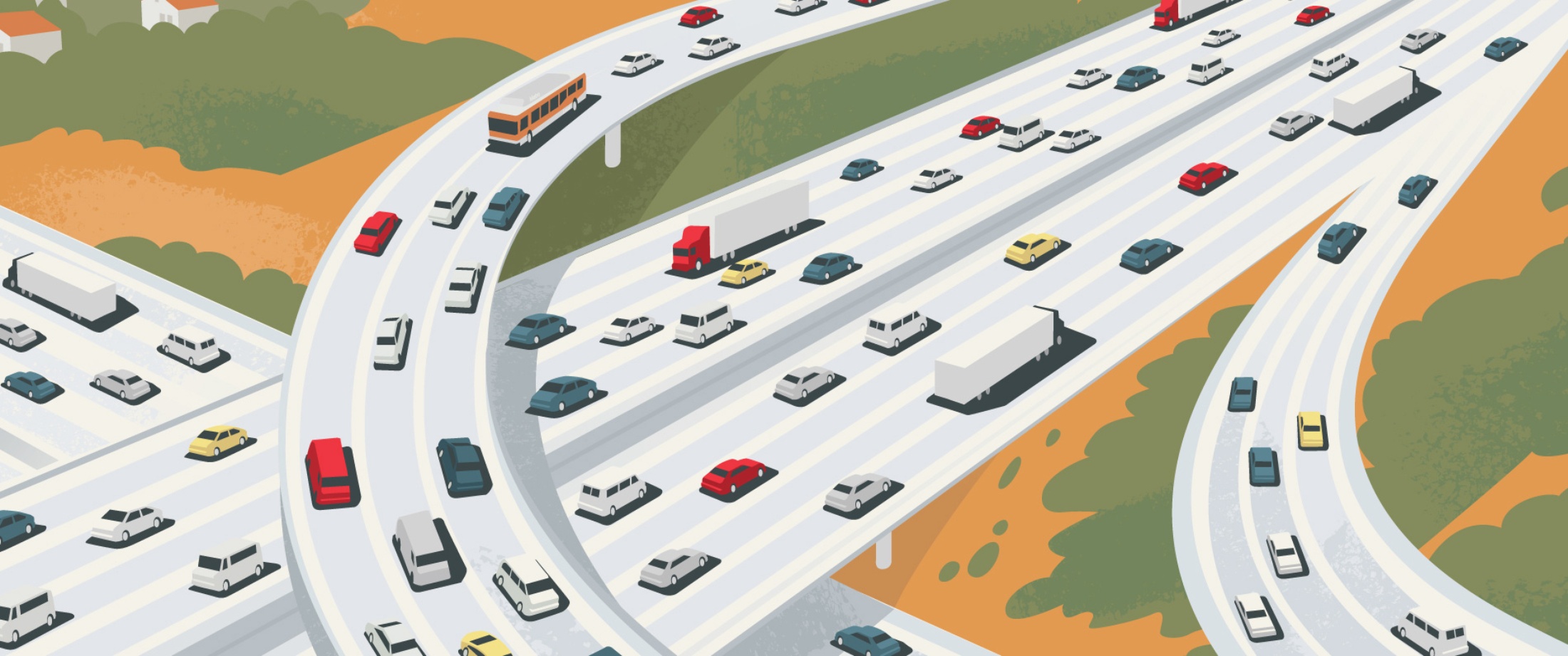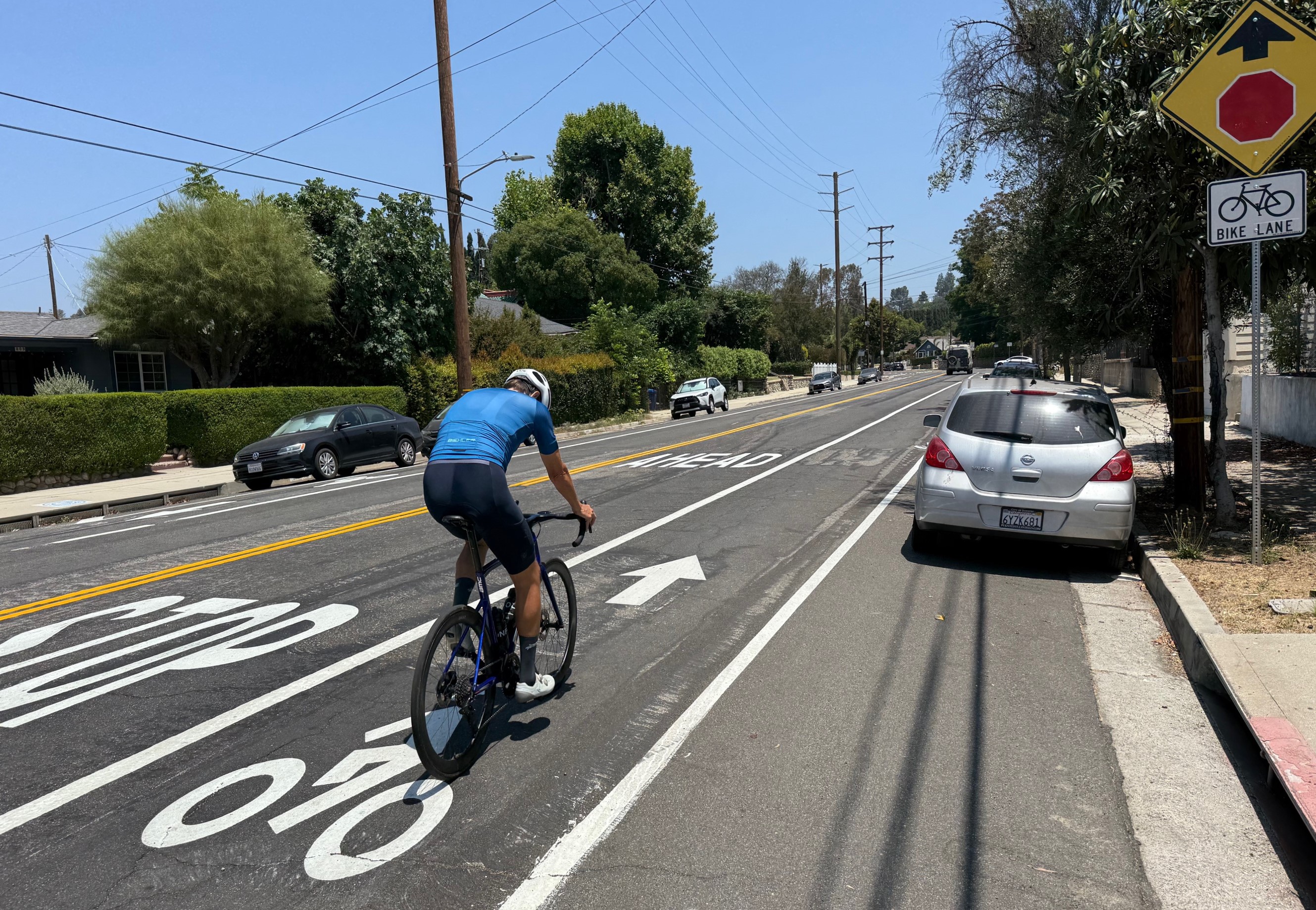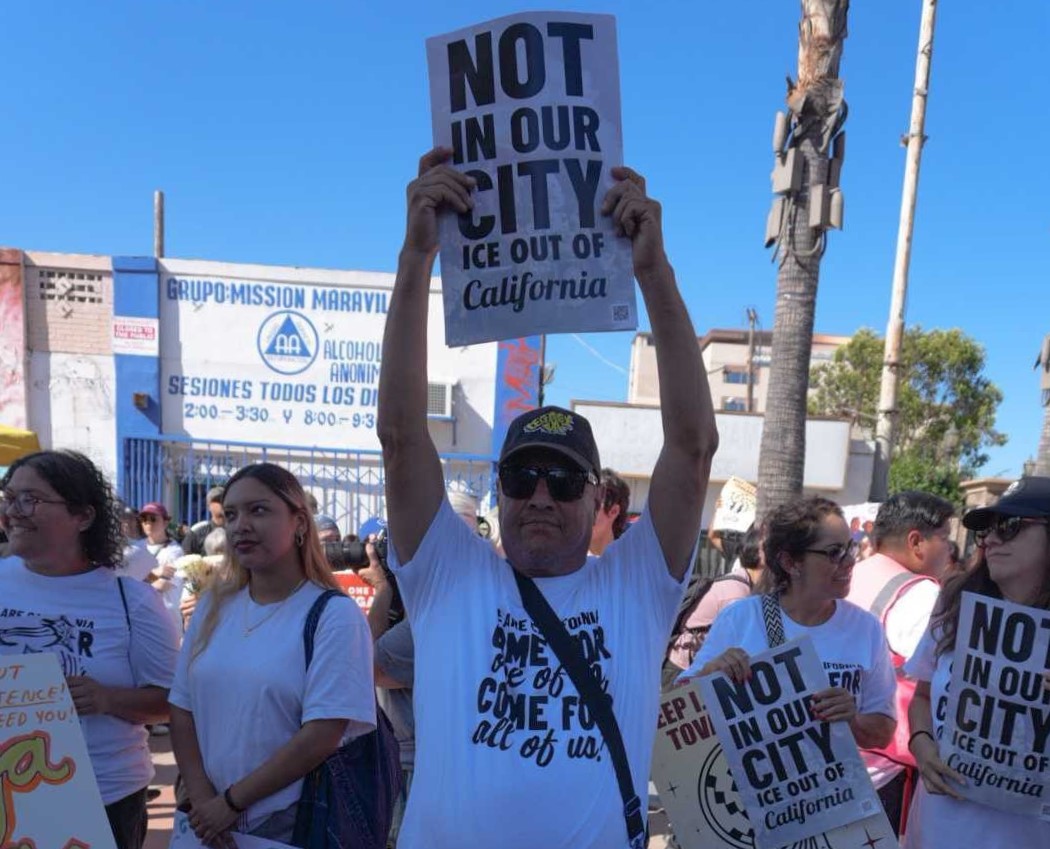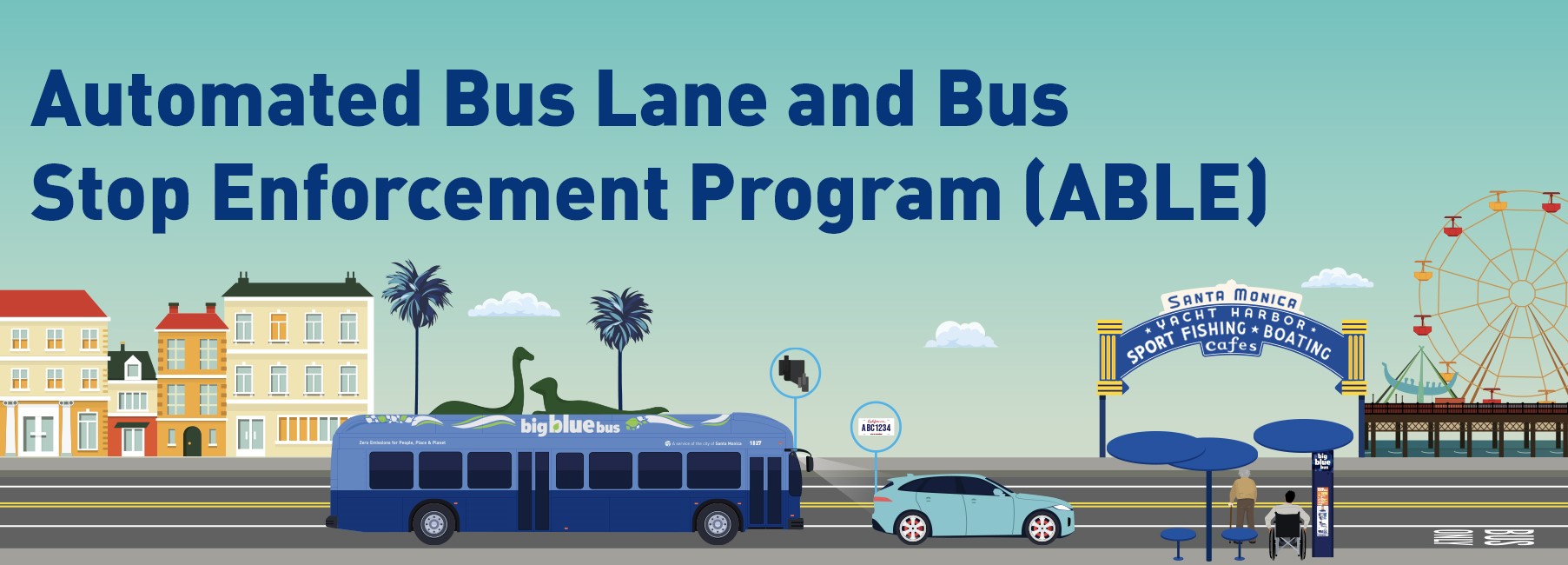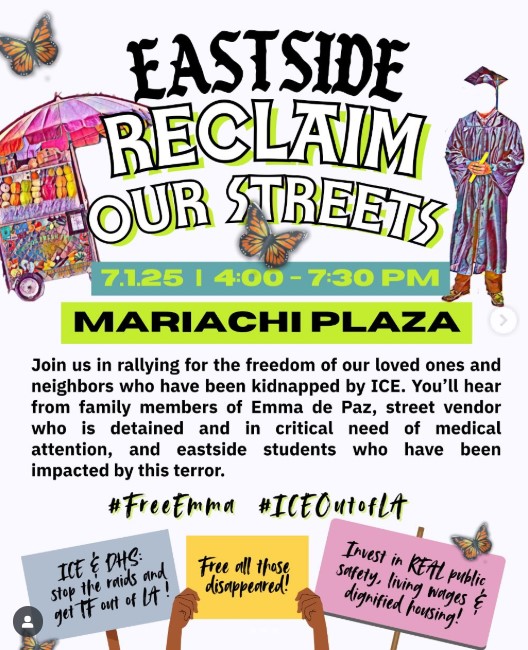This month, the Metro board is scheduled to consider a somewhat obscure item to modernize the use of Metro highway funding. The proposal would remove existing restrictions on the use of some sales tax revenue (Measures M and R) to allow the flexibility to fund projects that include complete streets features - such as transit, walk, and bike components. The new policy would not mandate inclusion of these features, but would allow local entities - cities, the county - greater flexibility to include them if appropriate.
Metro Vice Chair Hilda L. Solis is leading efforts in support of the proposed policy change, noting that, “Local jurisdictions need flexible funding to build projects that meet the everyday transportation needs of their residents.”
When Angelenos hear 'highway funding' what comes to mind are freeways: monolithic infrastructure just for cars, not for transit, walking, or bicycling. And though Metro spends billions of dollars widening freeways, the Metro Highway Program portfolio includes many projects that are are located on surface streets - and nearly all of their projects include surface street components. Even massive widening projects - e.g. Metro's $2 billion widening of the 5 Freeway from Orange County to the 605 - include new bridges over the freeway, new sidewalks. and reconfiguration of many local surface streets.
We paved Valley View Ave. south of the second half of the new Valley View Ave. Bridge at I-5 in La Mirada with new asphalt. Final concrete has been poured on all three segments of the second half of the bridge. https://t.co/xA5vA0m3BI #ValleyView pic.twitter.com/nO4zFn7nE6
— 5 FWY LA County (@My5LA) May 7, 2021
As the nonprofit ActiveSGV has noted, “When Metro Highway Funding is used on local streets, it impacts all roadway users, including older adults, children, and mobility-impaired residents who walk along and across streets to access local schools, community sites, and businesses. Transportation 'improvements' should not make local streets more difficult or dangerous to cross by foot.” Solis similarly notes that, “Streets aren’t just for cars – they are for buses, pedestrians, and cyclists, too. Metro should give recipients of Measure R and M funding the option to build Complete Streets infrastructure as part of any project funded with highway dollars.”
In line with the multi-modal vision promised in Measures M and R and in Metro's approved complete streets policy, the new highway policy gives the needed leeway to invest in multi-modal corridors that give people more transportation choices.
The North 710 Freeway shows one major example of the inflexibility in the current highway funds policy. When the Metro board canceled the proposed $6 billion North 710 Freeway tunnels, they specifically directed that the project's remaining funds ($780 million) go to corridor projects to “reduce automobile dependency" and/or "encourage multi-modal trips." Corridor cities proposed multi-modal projects: transit shuttles, bikeways, student transit pass programs, and the like. But the Metro Highway Program denied funding multi-modal projects (twice), in favor of predominantly car-centric projects, mostly widening surface streets.
Several 710 corridor cities have expressed frustration with this process. South Pasadena Mayor Diana Mahmud stated, "We have had some difficulty with Metro in having some of our proposed projects approved. In our view, staff is taking an unduly narrow perspective on the use of those funds." This week, Mahmud called the current proposal "a huge improvement" noting that, "Metro’s footprint is massive, and I believe leaving local decisions regarding use of scarce funding to local electeds will undoubtedly result in a decision that is more sensitive to the needs of the affected communities."
The North 710 reallocation projects aren't the only Measure R/M projects located on city streets.
Metro's 605 Freeway Corridor Hot Spots Program and 710 Freeway Corridor Early Action Program include many component projects located on surface streets.
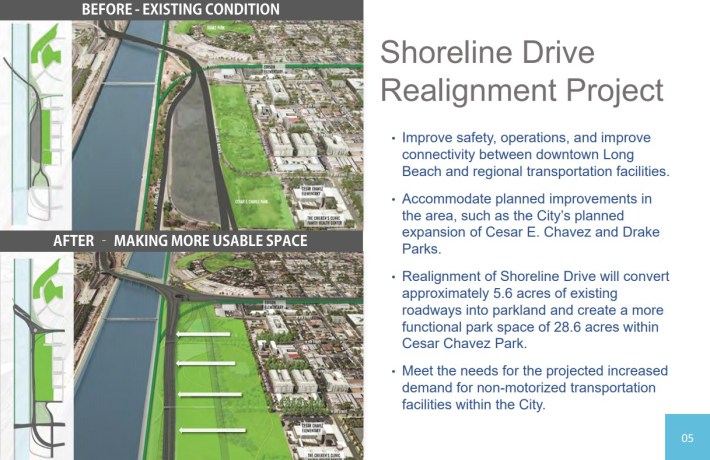
For some time, the city of Long Beach has been pushing for Metro 710 Corridor EAP funding to go to complete streets projects, but have been told that their plans must wait until a new highway modernization policy is approved. In an email to Streetsblog, Long Beach Mayor Robert Garcia, a former Metro boardmember who has championed the new highway policy, stated that, “The modernization and expansion of access to Metro’s highway program funding will have a great and positive impact on so many communities. In Long Beach, these improvements will allow for more open space in our neighborhoods and make important infrastructure investments."
Several regional Councils of Governments (COGs) support the modernization proposal, praising increased flexibility. The South Bay Cities COG wrote in support of the proposal as it would "benefit South Bay project sponsors [working on] projects that improve the public rights-of-way for all users, rather than just for cars and trucks." The Westside Cities COG wrote "We welcome a Metro Highway Program that further empowers our cities to... improve transit and active transportation."
The highway modernization proposal does have its detractors.
Groups in support more and bigger highways are against the proposed new policy. Metro's summary of comments notes criticism from several North L.A. County groups, as well as the Gateway Cities COG, and the San Gabriel Valley COG (the latter ultimately supported the overall proposal.) Perhaps the bluntest COG voice in opposition was La Verne Director of Public Works Dan Keesey who, in response to Metro's initial circulation of the proposal, remarked that the San Gabriel Valley Council of Governments (SGVCOG) should “tell [Metro] to eff off.”
Some highway supporters suggest that allowing for greater flexibility would run counter to 'what voters approved.'
This is an oft-repeated Metro Highway Program myth. Many leaders at Metro have debunked it.
In an email to Streetsblog, Metro Boardmember Mike Bonin noted "When voters approved Measure M, they voted for transformative congestion relief in Los Angeles County, not continuing business as usual." Bonin expects that approving the new policy will "align Metro's internal policies with what experts and the public already know--that the only proven way to relieve congestion is to give people real options to avoid it," and further "This action to reform and modernize the Metro Highway Program will honor the voters' investment by funding 21st century highway projects that advance our region's goals for sustainability, equity, and mobility."
In a discussion of the proposal at the SGVCOG, former Metro Boardmember John Fasana noted that the new policy brings Metro in alignment with the vision the agency promoted to voters: “complete streets [and] first/last miles were definitely mentioned in the [Measure M] ordinance.”
In a letter supporting the proposed policy, the nonprofit Move L.A. noted that "The language that voters approved for both measures included mechanisms for future revisions to meet the changing needs of our region as our communities, technologies, and funding change."
Ultimately the policy will come down to Metro leadership's vision for the future of Los Angeles County.
Will the Highway Program be allowed to continue to follow its own backward-facing agenda - in conflict with Metro leadership's embrace of transit, complete streets, equity, and sustainability? Or will the board start to take steps to modernize Metro's approach to highways?
